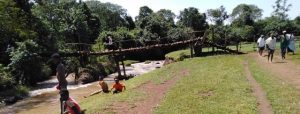Geography has been shown to be an important determinant of economic development. Remote areas tend to be poorer due to higher transaction costs for trade or inhospitable environments.
ESSP Research Note 74, by Gashaw T. Abate, Mekdim Dereje, Kalle Hirvonen, and Bart Minten. Synopsis of Working Paper 133.
Abstract: Geography has been shown to be an important determinant of economic development. Remote areas tend to be poorer due to higher transaction costs for trade or inhospitable environments. In this study, we show that remote areas in rural Ethiopia are also disadvantaged in their access to public service delivery. Relying on large household surveys, we assessed the association between exposure to agriculture and health extension and two measures of remoteness: (1) the distance of service centers to district capitals; and (2) the distance of households to service centers (i.e., the last mile). We found that villages located farther away from district capitals were less likely to receive agricultural extension services than other villages. In contrast, exposure to health extension services did not vary across more and less connected villages. This difference between the two sectors could be due to the fact that more remote villages tend to have fewer agriculture extension workers who also put in fewer hours into their work than their peers. We did not find similar evidence in the health sector. Finally, for both sectors, we found that the last mile matters: more remote households within villages were less likely to receive both types of extension services. Download the PDF.
